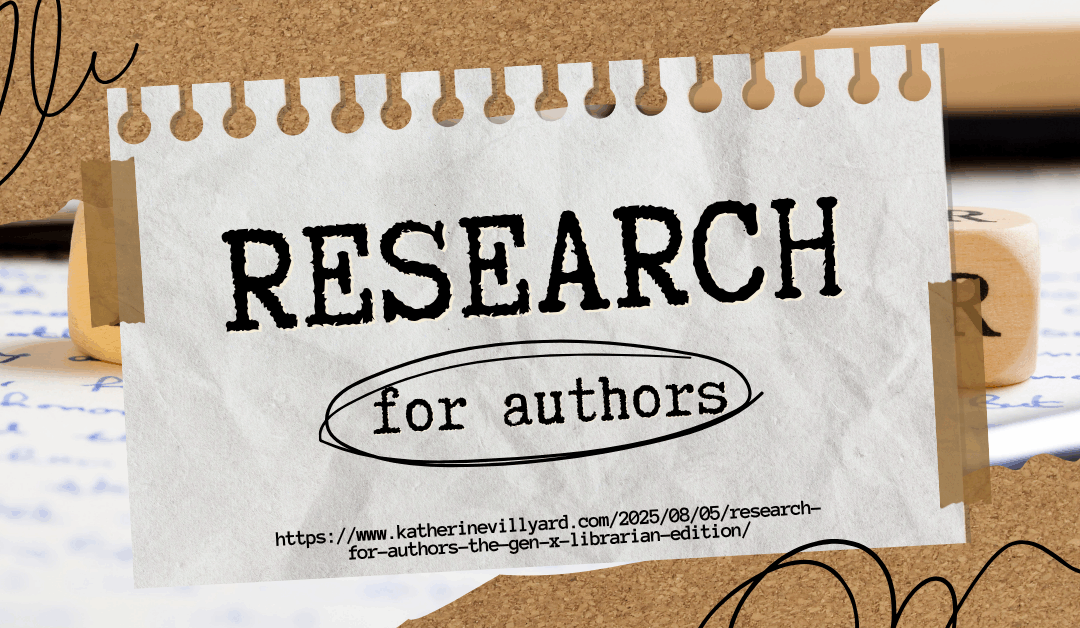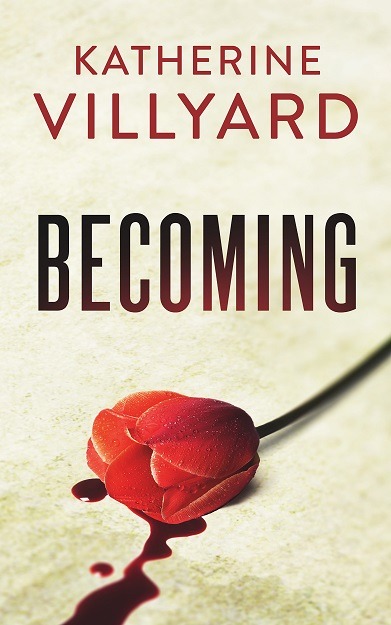(Swear warning, as I have opinions.)
Do you have a library degree? If so, go ahead and skip this post. I give you permission!
For everyone else: here is how NOT to research your novel (in no particular order):
- Ask ChatGPT. Don’t do it.
- Wikipedia. Look, anyone can edit Wikipedia. I mean, the advantage of Wikipedia is that anyone can edit it, and the disadvantage of Wikipedia is that anyone can edit it. I mean, okay, do your early research there, but don’t base your entire novel on Wikipedia. Most (but not all) of Wikipedia is good. Don’t base your novel on the part that isn’t.
- Non-peer-reviewed books: look, anyone can write a book. I mean, okay, do your early research there, or read there for fun, but confirm. Do not base your entire book on Joe Blow’s Guide to 19th century London.
- Also, the video of the guy who read the thing and is talking about the thing. Just read the thing.
- TikTok.
“But Kaaaaaaaaaaaaaaaaaaaaaatherine!” you say. “What the actual fuck, what am I supposed to read to understand the topic? Maybe I don’t actually fucking CARE enough about this topic in my fiction book to actually do any research!” I mean, fine, you do you! but you might want people who know something about outer space or 15th century Venice to actually like your book, right?
What you want is what your local public library calls “digital resources.” You can look things up in actual academic databases! (What, were you afraid I was going to tell you to go to the university and ask the reference librarian? That’s a great option! But you can also use scholarly databases at home. For example, my library offers JSTOR, which is what I want, and also a lot of newspapers and the like.)
In addition, these were considered markers of a good source when I was in library school:
- Primary sources. People who were actually there writing or talking about what happened. (Yeah, fuck those videos with the guy who read the thing trying to explain the thing to you. He’s not a primary source, and he’s also adding his own slant to the information. He’s taking you farther away from the thing by adding an extra interpretation layer to the thing. JUST READ THE THING. There is no substitute.)
- Peer-reviewed journals. What these are: Professor Whomever writes an article and submits it to a scholarly journal, and a bunch of other professors read what Professor Whomever wrote and decide whether Professor Whomever is flat out lying or making shit up before it’s published. (It is not required for the other professors to agree with Professor Whomever, only that they think Professor Whomever is publishing something that’s not a lie.)
- Things that rely on the previous two (but the previous two are better).
There are other things that are good resources that aren’t the above three, but what you want to watch out for is a book by Joe Blow who contradicts literally everything all the primary sources say in his THRILLING NEW TAKE.
(Look, I get it, I’m Gen X and we read really fucking fast because we had no internet and very few TV channels. READ THE THING. There is no substitute for READING THE THING. You’re an author so presumably you like reading, right?)
“But Kaaaaaaaaaaaaaaaaaaaaaaaaaaaaaaaaaaaaaaaaaaaaaaaaaaaaaaaaaaaaaaaaatherine!!! Literally everyone knows this thing but the primary sources all unanimously contradict what everyone knows!!!” Yeah, that’s called a myth. Sorry, I’m old and believe in facts. I also believe in non-situational ethics. So old!
In fact, the primary sources contradicting what you thought you knew is cool! It’s called learning. Learning is awesome!
On the other hand: sometimes you get a myth that’s so entrenched that people will literally not believe you if you include it in your novel. You have to decide how to handle that. You can either skip it entirely somehow, or take the chance to show the reader that it’s a myth… depending on how confident you feel and how strongly you feel about the thing.
One last thing: alas, what with the rise of Generative AI, you can no longer trust your own eyes. You want an actual human being who was there to verify that this was what happened. Preferably more than one. There’s a lot of fake photos and video out there, and it’s only getting more convincing. You want a documented chain of evidence that someone was there and saw the thing in person.
And that, dear reader, is my profane guide to research. I am at the old end of Gen X, and also have two master’s degrees (art and library science). So, uh, I went to college to learn this stuff… and was immediately poached into IT. Make of that what you will.



